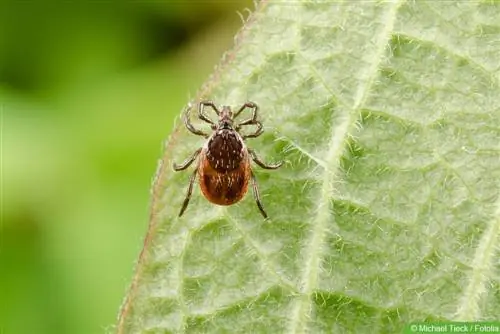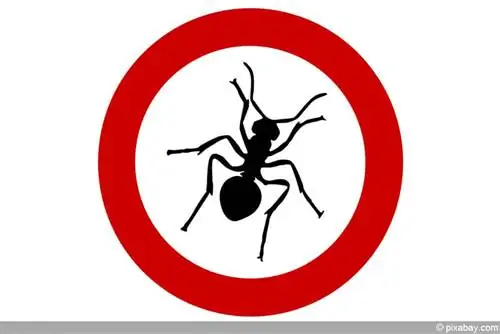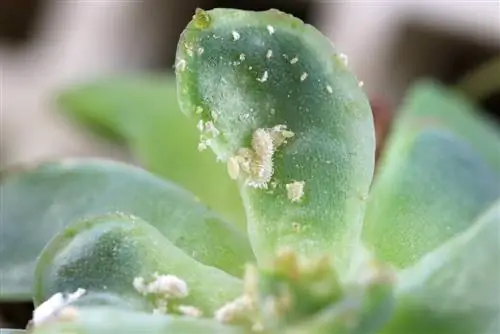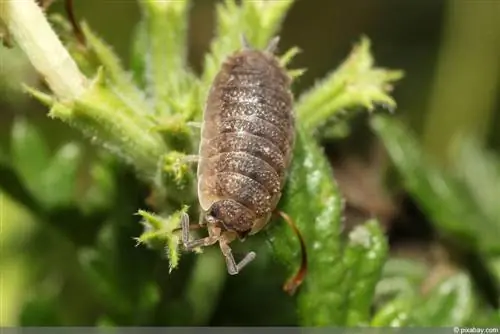- Author admin caroline@plants-knowledge.com.
- Public 2023-12-17 03:39.
- Last modified 2025-01-24 12:45.
Ticks (Ixodida) like to spread around home gardens. Fortunately, there are effective preventive measures and control methods so that you can significantly reduce the risk of a tick bite!
Natural enemies
Ticks have a variety of natural predators, such as songbirds. These can be attracted to the garden with birdhouses and feeding stations. But be careful: songbirds are not only natural friends of ticks, they can also be hosts! It is therefore advisable not to install birdhouses and feeding stations in the immediate vicinity of the house or children's play equipment. In addition to songbirds, the following predators also make life difficult for ticks:
- some species of fungi, e.g.: Metarhizium anisopliae and Beauveria bassiana
- roundworms
- Tick wasp
Note:
Large ant nests can also keep the tick population low.
Garden care
With the right garden care, not only plants grow and thrive, ticks can also be prevented with a few simple steps. To do this, you first have to know that ticks love moist and shady environments. There are often many places in the garden that provide ideal conditions for pests, such as tall grass. Bushes and weeds provide the ideal hiding place for mice - the main hosts of ticks. Equipped with this knowledge, hobby gardeners can counteract a plague of ticks:
- Mow the grass regularly
- from spring to autumn
- remove loose leaves quickly
- Removing bushes and weeds
- especially near stone walls, wooden harbor and lawn edges
Plan planting cleverly
Not only the care of garden plants, but also their planting should be carefully considered. If you want to reduce the risk of ticks in your own garden, you should choose plants and decorations so that as much sunlight as possible reaches the garden. Because ticks neither like sunny nor dry places. Fencing around the garden also prevents hosts, such as hedgehogs or foxes, from entering the green oasis and bringing in ticks. Hobby gardeners can also take the following preventative measures:
- Spread trails in wooded areas
- Use ground cover sparingly
- Buffer zone between lawns and bushes
- separates areas of life from ticks and people
Plants against ticks
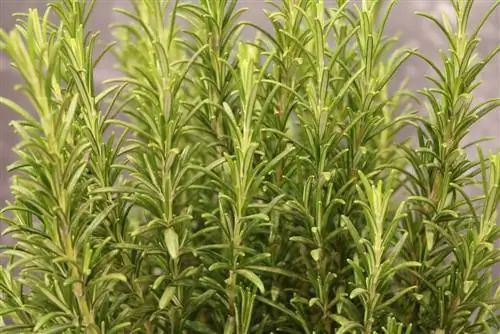
The garden is ideal for growing plants against ticks. Because numerous plants exude an intense scent that the pests don't like at all. The practical thing is that many people perceive the essential oils as having a pleasant smell. In addition, some of the plants can also be used in the kitchen. If you want to keep ticks out of the garden with plants, you should grow the following plants:
- tansy (Tanacetum vulgare)
- Catnip (Nepeta mussinii)
- Narrow-leaved lavender (Lavandula angustifolia)
- Rosemary (Rosmarinus officinalis)
- Dalmatian Insect Flower (Tanacetum cinerariifolium)
Note:
Catnip is considered a medicinal plant that is said to have numerous positive effects. A freshly brewed tea can, among other things, have antipyretic, antispasmodic and antibacterial effects.
Citrus water
Another home remedy for ticks is citrus water, which hobby gardeners can make quickly and easily themselves. All you need to prepare it is 500 milliliters of water and two citrus fruits, such as lemons, limes, oranges or grapefruits. The water is first brought to a boil and the fruit is sliced. The lemon slices then end up in the water and are cooked for about a minute. The citrus water must now simmer gently for another 60 minutes before it is cooled and poured into a sprayer. The best way to get rid of or prevent ticks from the garden with citrus water is as follows:
- spray in cool, damp and dark places in the garden
- use regularly
- refresh after every rainstorm
Tick rolls
Tick rolls have proven to be extremely effective in the fight against ticks and at the same time have the advantage of being biodegradable. The rolls are lined with natural cotton and treated with a tick-killing agent. However, it is not the ticks per se that are lured into these roles, but rather their most important hosts: mice. These feel particularly comfortable in the lined tick rolls and like to nest there. While the active ingredient does not cause any harm to rodents, it does kill ticks. It is also practical that the use of tick rollers is very simple:
- Put out tick rolls in the garden twice a year
- in places where mice like to hang out
- near compost heaps or garden sheds

